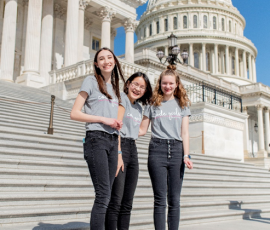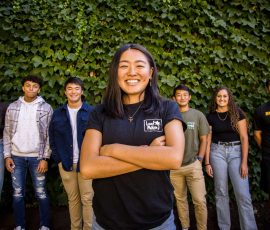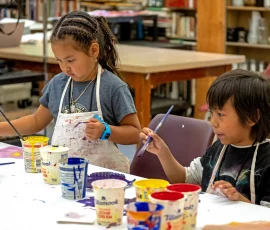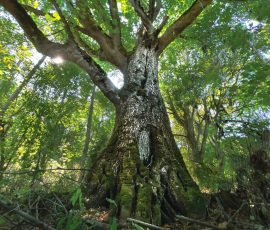High school science teachers encourage their students to find joy and excitement in the process of scientific inquiry. Yet many teachers haven’t had an opportunity to engage in research themselves since they were a student. How can we help provide opportunities for that hands-on inspiration in an ongoing manner?
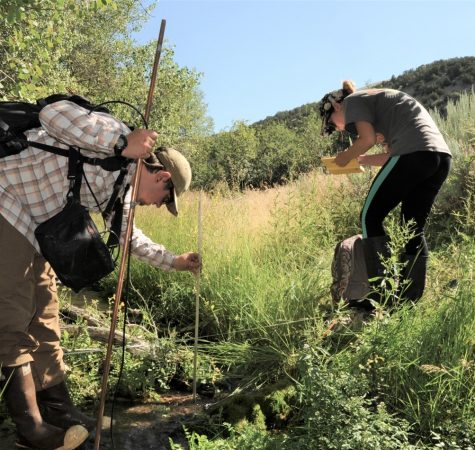
This is the question the Murdock Trust Partners in Science Program was designed to address. This program, now in its 32nd year, offers high school teachers in the Pacific Northwest a chance to rediscover their love for scientific inquiry through partnering with a researcher at a university or nonprofit institution doing cutting-edge research. Over the course of two summers, teachers conduct research and develop posters that they have a chance to present at our Partners in Science National Conference. These projects give teachers a chance to engage in scientific inquiry, bring knowledge and hands-on practice from the lab directly back to the classroom, and support critical research.
Here are some recent Partners in Science grants the Trust has been excited to support:
- Idaho State University: A partnership between researchers at Idaho State University and a high school educator at Pocatello High School will advance understanding of two genes that are related to birth defects. Birth defects are the leading cause of infant mortality and can cause life-long health challenges, so understanding the causes of these defects is critically important. This partnership will increase the research capacity of this project, provide the high school educator with new skills in the experimental method, and generate research projects for students in her Genetics class.
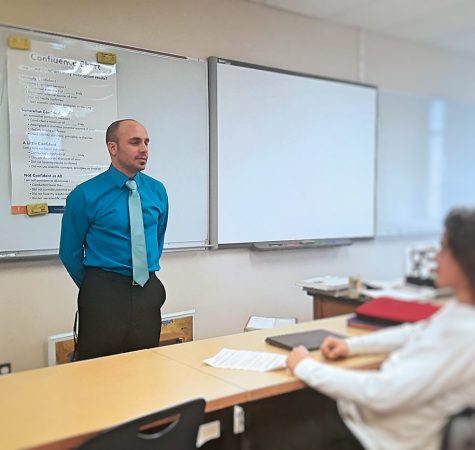
- University of Montana: It can be hard for students from small rural communities like Frenchtown, MT to envision themselves in an academic science career, according to a teacher at Frenchtown High School. But thanks to a collaboration with the Spatial Analysis Lab at the University of Montana, that teacher will be able to bring real-world examples of field data collection back to the classroom.
- University of Oregon: Over half the global population lives in cities, where surfaces like asphalt and concrete replace natural soils and vegetation. This amplifies pollutant concentration and reduces air quality, but installing vegetated areas in cities can help mitigate these effects. In this research project, a teacher at Churchill High School will partner with a researcher at the University of Oregon to determine which plants and microbes offer the greatest benefits for recycling nutrients in these vegetated areas.
- University of Washington: A collaboration between a researcher at the University of Washington and a teacher at Stadium High School will breathe new life into the teacher’s Addiction and the Brain class, a year-long course serving approximately 90 high school students annually. This project will look at the ways a particular protein influences the development of brain circuits and its connection to Autism Spectrum Disorder, a critical piece of research that will be brought into student labs and benefit the future scientists of Tacoma, WA.
This is just a small sampling of the work being done in laboratories and classrooms throughout our region. Yet each of these partnerships is an instance of scientific research for the common good. Often, the relationship between the high school teacher and the researcher extends beyond the grant period. We’re told that these experiences often change the way teachers conduct their high school labs, moving to an inquiry-based approach that prepares and excites students for STEM careers. We are grateful to partner with so many incredible schools and universities as they create ripple effects of good across our region’s scientific community.
To learn more about Partners in Science and discover if your university or high school is a good fit for a partnership, visit this webpage.


